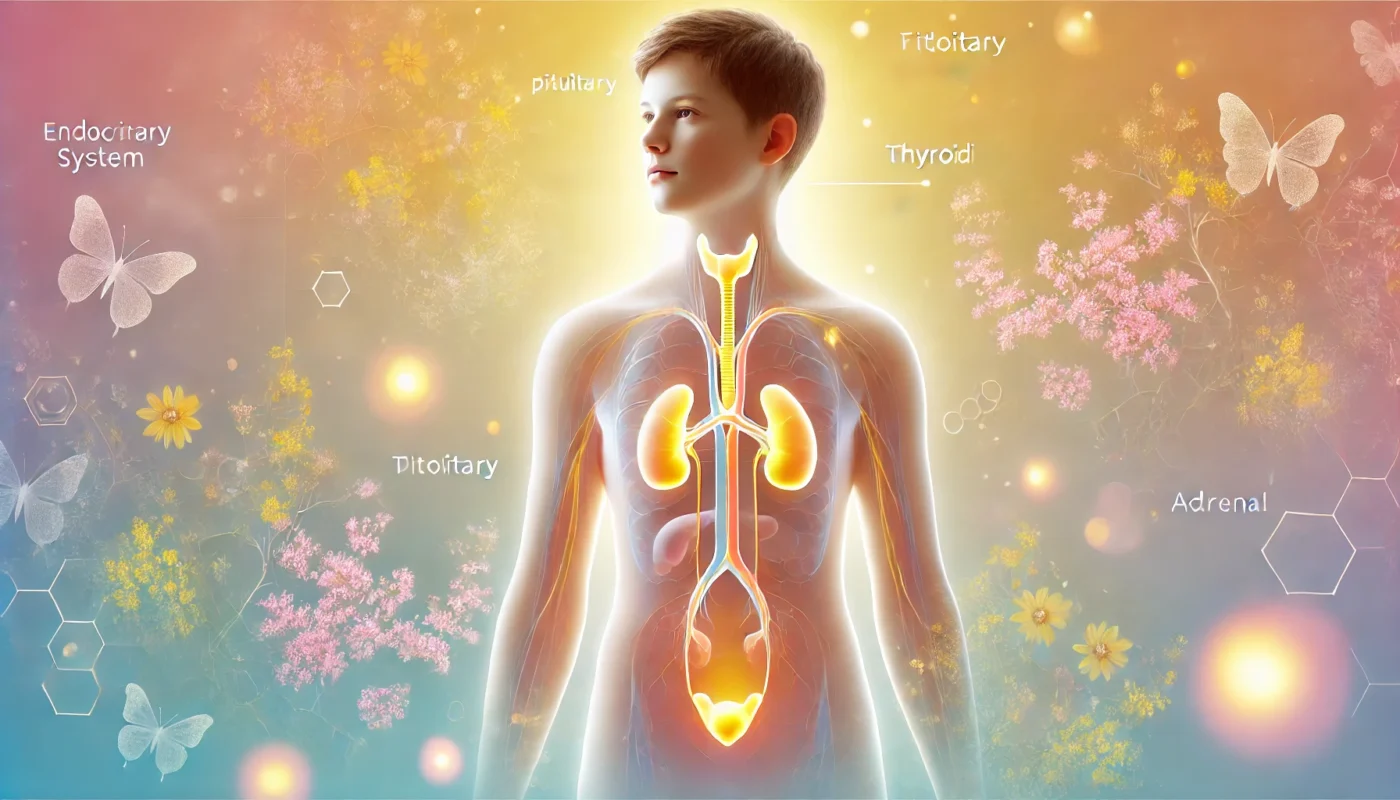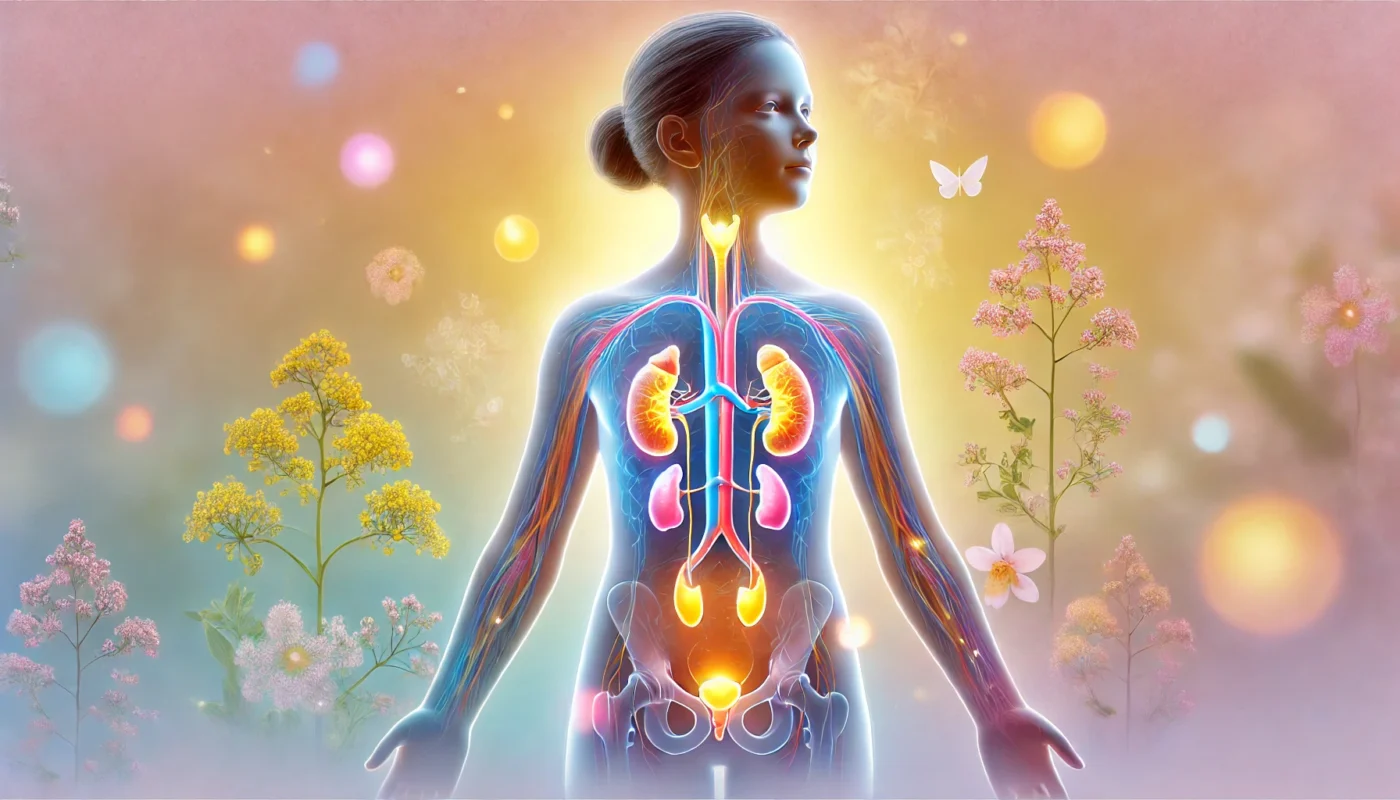The teenage years are a time of profound physical, emotional, and psychological transformation driven largely by hormonal changes. During puberty, adolescents experience a surge in hormone production that supports growth, sexual maturation, and the development of secondary sexual characteristics. While these changes are natural, they can also be challenging, often leading to issues such as acne, mood swings, and fluctuating energy levels.
Zinc Picolinate and Teen Hormonal Health: Supporting Balanced Growth is an original (HSLHealing) article.
One nutrient that plays a critical role in supporting hormonal health and overall growth during adolescence is zinc. Zinc picolinate, a highly bioavailable form of zinc, has emerged as a powerful supplement for teens, aiding in hormonal regulation, immune support, and overall well-being. This article delves into how zinc picolinate helps teens navigate the complexities of puberty while supporting balanced hormonal health.
You May Also Like:
Zinc Picolinate for Hormonal Balance: A Natural Solution for Men and Women
Zinc Picolinate for Vegans: Why It’s an Essential Addition to Plant-Based Diets
The Importance of Hormonal Health During Puberty
Puberty marks a critical stage of development where the body undergoes significant changes, triggered by hormonal shifts. Key hormones involved include:
- Testosterone and Estrogen: Responsible for the development of secondary sexual characteristics, such as muscle growth in boys and breast development in girls.
- Growth Hormone: Promotes bone and muscle growth.
- Thyroid Hormones: Regulate metabolism and energy production.
These hormonal changes are orchestrated by the hypothalamic-pituitary-gonadal (HPG) axis, a complex signaling system that ensures proper development. However, disruptions in nutrient intake or absorption can affect hormone production and balance, potentially leading to physical and emotional challenges.

Why Zinc Is Essential for Teenagers
Zinc is a trace mineral essential for numerous biological processes, many of which are especially critical during adolescence. Key roles of zinc include:
- Hormonal Regulation:
Zinc influences the production and balance of testosterone, estrogen, and other hormones essential for puberty and growth. - Support for Growth:
Zinc aids in cell division and protein synthesis, processes vital for growth spurts during adolescence. - Immune Function:
Zinc enhances the activity of immune cells, helping teens fight off infections during a period of rapid physical development. - Acne Prevention:
Zinc’s anti-inflammatory and antibacterial properties reduce acne severity, a common issue during puberty. - Mood Stabilization:
Zinc supports neurotransmitter function, helping to regulate mood and reduce the emotional volatility often associated with hormonal changes.
What Is Zinc Picolinate?
Zinc picolinate is a chelated form of zinc, where zinc is bound to picolinic acid. This form enhances the absorption of zinc in the gastrointestinal tract, making it one of the most bioavailable and effective forms of zinc supplementation. For teens, who often have increased nutritional needs, zinc picolinate ensures that adequate zinc levels are maintained to support overall growth and hormonal balance.
How Zinc Picolinate Supports Hormonal Health in Teens
1. Promoting Testosterone Production
Testosterone plays a central role in male puberty, driving muscle growth, voice changes, and sperm production. Zinc is essential for testosterone synthesis and helps prevent imbalances that can lead to delayed or stunted development.
- Study Insight: A study in Journal of Clinical Endocrinology & Metabolism found that zinc supplementation increased testosterone levels in adolescents with deficiencies, supporting normal pubertal development.
2. Regulating Estrogen Levels
In girls, estrogen regulates the development of reproductive organs and secondary sexual characteristics. Zinc supports the enzymes involved in estrogen metabolism, ensuring hormonal balance.
- Research Finding: A study published in Nutrients highlighted that adequate zinc levels improved estrogen regulation and reduced the risk of hormonal imbalances during puberty.
3. Supporting Growth Spurts
Rapid growth in height and muscle mass during adolescence requires a high rate of cell division and protein synthesis. Zinc picolinate provides the necessary zinc to facilitate these processes.
- Clinical Evidence: Research in American Journal of Clinical Nutrition showed that zinc supplementation significantly improved growth rates in zinc-deficient adolescents.

4. Managing Acne and Skin Health
Acne is a common concern during puberty, caused by hormonal changes that increase sebum production. Zinc’s anti-inflammatory and antibacterial properties help reduce acne severity and promote clearer skin.
- Study Finding: A clinical trial in Dermatologic Therapy demonstrated that zinc supplementation reduced acne lesions by 50% in teens after 12 weeks of use.
5. Enhancing Mood Stability
The emotional ups and downs of adolescence are often tied to hormonal fluctuations. Zinc supports the production of neurotransmitters like serotonin and dopamine, which stabilize mood.
- Evidence: A study in Journal of Adolescent Health found that zinc supplementation reduced symptoms of irritability and anxiety in teens, promoting emotional resilience.
6. Strengthening the Immune System
During puberty, teens are often more susceptible to infections due to increased physiological demands. Zinc picolinate enhances immune function, helping to maintain health during this critical period.
- Research Insight: A study in Journal of Nutrition reported that zinc supplementation improved immune responses in adolescents, reducing the incidence of common illnesses.

Zinc Deficiency in Teens
Zinc deficiency is a common issue among adolescents due to poor dietary habits, increased physiological demands, and hormonal changes. Symptoms of deficiency include:
- Delayed growth or puberty
- Persistent acne
- Weak immune function
- Mood swings or irritability
- Fatigue
Statistics:
- According to a study in Clinical Nutrition, 30% of adolescents have zinc levels below the recommended range, with higher rates observed in teens with poor dietary habits.
- The World Health Organization (WHO) estimates that 17% of the global population is at risk of zinc deficiency, with teens being a particularly vulnerable group.
Dietary Sources of Zinc
In addition to supplementation, teens can benefit from zinc-rich foods to meet their nutritional needs. Examples include:
- Animal-Based Sources: Oysters (highest natural source), beef, chicken, turkey, eggs.
- Plant-Based Sources: Pumpkin seeds, lentils, chickpeas, quinoa, fortified cereals.
However, teens with dietary restrictions, such as vegetarians or vegans, may find it challenging to obtain sufficient zinc through diet alone, making zinc picolinate supplementation an excellent option.

Recommended Dosage and Safety
The recommended dietary allowance (RDA) for zinc in adolescents is:
- Teen boys (14–18 years): 11 mg/day
- Teen girls (14–18 years): 9 mg/day
For therapeutic purposes, such as addressing deficiencies or improving acne, doses of zinc picolinate typically range from 15–30 mg/day. However, excessive zinc intake (above 40 mg/day) can lead to:
- Nausea
- Reduced copper absorption
- Gastrointestinal discomfort
Note: Always consult with a healthcare provider before starting supplementation to determine the appropriate dosage and ensure safety.
Integrating Zinc Picolinate into a Teen’s Routine
- Combine with a Balanced Diet: Encourage teens to eat a nutrient-dense diet that includes a variety of zinc-rich foods.
- Monitor Skin and Growth: Track improvements in skin health, growth, and mood to assess the effectiveness of supplementation.
- Address Individual Needs: Adjust dosages based on specific concerns, such as acne or delayed puberty, under medical guidance.
Future Research Directions
While existing studies highlight the benefits of zinc picolinate for teens, further research could explore:
- Long-term effects of zinc supplementation on hormonal health and development.
- Synergistic effects of zinc with other nutrients, such as vitamin D or magnesium, during puberty.
- Zinc’s role in supporting mental health and academic performance in adolescents.
Conclusion: Zinc Picolinate for Balanced Growth in Teens
Zinc picolinate offers a natural and effective solution for supporting hormonal health, growth, and overall well-being in teenagers. By promoting testosterone and estrogen regulation, enhancing immune function, and addressing common challenges like acne and mood swings, zinc picolinate helps teens navigate the complexities of puberty with greater ease.
For parents and healthcare providers seeking to optimize adolescent health, incorporating zinc picolinate into a balanced nutritional plan can provide significant benefits. As always, consult with a healthcare provider to tailor supplementation to individual needs and ensure safe and effective use.

References
- Zinc status and its association with the health of adolescents: A review of studies in India. Retrieved from: https://pmc.ncbi.nlm.nih.gov/articles/PMC4120804/
- Zinc Therapy in Dermatology: A Review. Retrieved from: https://pmc.ncbi.nlm.nih.gov/articles/PMC4120804/
- Serum zinc levels and efficacy of zinc treatment in acne vulgaris: A systematic review and meta-analysis. Retrieved from: https://pubmed.ncbi.nlm.nih.gov/32860489/
- The role of zinc in the treatment of acne: A review of the literature. Retrieved from: https://pubmed.ncbi.nlm.nih.gov/29193602/
- Zinc is an Essential Element for Male Fertility: A Review of Zn Roles in Men’s Health, Germination, Sperm Quality, and Fertilization. Retrieved from: https://pmc.ncbi.nlm.nih.gov/articles/PMC6010824/
- Zinc as a Gatekeeper of Immune Function. Retrieved from: https://pmc.ncbi.nlm.nih.gov/articles/PMC5748737/
- Zinc enhances the cellular energy supply to improve cell motility and restore impaired energetic metabolism in a toxic environment induced by OTA. Retrieved from: https://pmc.ncbi.nlm.nih.gov/articles/PMC5676743
Important Note: The information contained in this article is for general informational purposes only, and should not be construed as health or medical advice, nor is it intended to diagnose, prevent, treat, or cure any disease or health condition. Before embarking on any diet, fitness regimen, or program of nutritional supplementation, it is advisable to consult your healthcare professional in order to determine its safety and probable efficacy in terms of your individual state of health.
Regarding Nutritional Supplements Or Other Non-Prescription Health Products: If any nutritional supplements or other non-prescription health products are mentioned in the foregoing article, any claims or statements made about them have not been evaluated by the U.S. Food and Drug Administration, and such nutritional supplements or other health products are not intended to diagnose, treat, cure, or prevent any disease.

